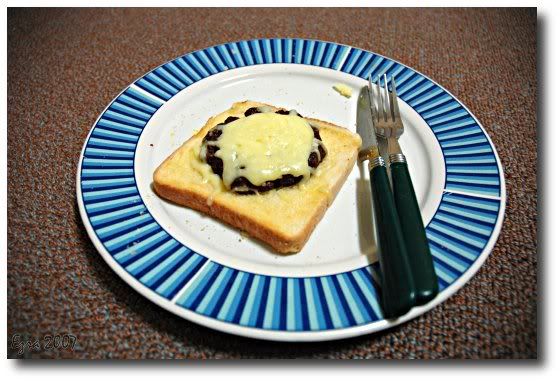Which of the following statements is/are true? [1] The picture below is of a forest fire. [2] Vitamin C is good for health. [3] Milk prevents osteoporosis because it has calcium. [4] Fat free food is good for your health. [5] Eggs are bad for the heart as they contain cholesterol. [6] The number of deaths for every 1000 people in 2006 is higher in Sweden than Columbia. [7] Alcohol is bad for the body.
 Rural Australia
Rural AustraliaThe answer is [6]. Yes, none of the first five statements are true. I took the picture above in Churchill, Victoria. The sun is rising over the horizon. Just beyond the hills lies a powerplant and three massive cooling towers -hence the steam. It's easy to believe it's a forest fire from
anecdotal evidence. The colours and trees suggest that it is a forest fire.
Taking Vitamin C supplements has no proven health benefits. Sure, vitamin C deprivation causes scurvy, but taking Vitamin C supplements has no proven health benefits. Most people, including those in developing countries do not require Vitamin C supplements at all. There has been no proof that it is beneficial in large doses. In moderate doses, it does reduce the severity of flu symptoms by 30% in people who are
already suffering from the flu. That's all it has been proven to do. It does not even help prevent the flu.
The same could be said for milk. Bones are made of calcium. Milk has lots of calcium - so it must be good for bones...right? Well, for the millions of dollars spent advertising the benefits of calcium in milk, there has been no proof that milk actually improves bone density unless a person is calcium deprived. This, of course, almost never happens even in developing countries. Hunter gatherers in Africa consume only ~300mg of calcium a day. They have strong bones and osteoporosis is almost unheard of. European women on the other hand consume up to ~2000mg of calcium a day. Still not convinced? A Harvard study of 78000 nurses concluded that consuming 3 glasses (0.6L) of milk a day does not help prevent osteoporosis. European women who consume lots of milk and calcium rich dairy products have the highest rate of osteoporosis in the world*. It is now hypothesized that too much milk is actually bad for bones. The hypothesized biological reasons for this can be quite complex - it involves the survival and propagation of osteoblasts (bone creating) and osteoclasts (bone destroying) cells within the living tissue of bones. Bottom line: Milk is not good for bones unless you are calcium deprived or a young child. Want to prevent osteoporosis? Go for a walk. It will do you more good than gorging on milk. Physical activity stimulates the healthy remodeling of bone tissue.
Fat free food almost always contain high amounts of sugar and salt. Salt isnt a problem for most people (with normal blood pressure) and is readily excreted by the kidneys unless you are dehydrated. However, the sugar load it places on your body gives you a sugar high - followed by a sugar low. Bottom line, you'll feel hungry faster and end up eating more than if you had ate normal food with healthy amounts of fibre and protein.
Eggs yolks are loaded with cholesterol, a substance that in high amounts has been shown to be a major factor in heart disease. True, people with high cholesterol levels are at significantly higher risk of heart disease. But eating eggs does not actually increase a persons cholesterol level! The cholesterol is not absorbed by the body. Many people are depriving themselves of eggs due to this false belief. Bottom line: Eggs are a good, nutritious source of protein and vitamins. They provide long lasting satiety ('fullness') for minimal calories too. So what causes high cholesterol levels? Well the answer is fatty foods. Fatty foods with lots of saturated fat and trans-fatty acids to be precise. It gets absorbed in your gut and your body has to somehow clean it from your blood. Guess what molecule it uses to do so. Cholesterol. So yeah, a diet high in fat does result in high cholesterol levels. Eating eggs does not.
Do you see a trend here? The examples above illustrate the dangers of following anecdotal evidence. As for the the 7th statement, Columbia may be the most dangerous country in the world with many murders and shootings but it's death rate is actually lower than sweden. Why? Because Columbia has a 'young' population. Most of it's people are young. Sweden on the other hand has an aging population. More people, per 1000 citizens, died in Sweden than in Columbia in 2006. This is one way statistics could be used to distort the truth. The fallacy of drawing conclusions from crude rates that apply to the entire population.
The problem with the last statement is that it is too broad sweeping. Alcohol is excess is very very bad for the body. But as it turns out, alcohol in moderate amounts is actually quite beneficial to people of age groups who are at risk of ischaemic heart attack. Consumed with a meal in moderate amounts (~1.5 standard drinks), it lowers the surge of blood lipid levels. This effect is due to the alcohol (ethanol) itself. Despite much effort by wine companies to promote the supposed benefits of wine, drinking other spirits could achieve similar effect. Be wary of wine companies promoting their product claiming that some substance (usually with a nice sounding scientific name) is good for the body. As with the case of Vitamin C and milk above,
anecdotal evidence means very little. Just because substance X is found in your skin does not mean consuming it will improve your complexion.
Phew, that was a long post. Thanks for reading. What is the standard of truth and reasoning that you follow? How do you discern truth from fallacy? Comments welcome.
*There is a possibility of ecological bias with this statement. The European women may be more prone to osteoporosis for other factors in their environment.


